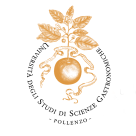Introduction
The University of Gastronomic Sciences is a private non-profit university located in Piedmont, northern Italy. It was founded in 2004 by the International Slow Food Association in cooperation with the Piedmont and Emilia-Romagna regions. It is the world's first gastronomic science university dedicated to the full range of food.
Overview
Student size: Since its establishment in 2004, more than 3,000 students have studied or graduated here. The school enrolls about 100 first-year students in the undergraduate major of "Gastronomic Science and Culture", about 30 students in the master's major of "Sustainable Food Innovation and Management", and about 100-150 students in 8 different one-year master's majors. In 2021, the school received about 500 students from more than 60 countries. students.
Faculty: The school has an excellent faculty, including visiting professors from all over the world, who have rich teaching and research experience in food science, culture, history, economy and other related fields, and can provide students with professional and diversified guidance.
History
In 2004, Carlo Petrini, the founder of the Slow Food Movement, founded the University of Gastronomic Sciences to train practitioners in the food and tourism industry, food-related government departments or food-related journalism. In 2005, the school opened a second campus in Korono, offering a master's degree program centered on gastronomic science, food culture and communication, and later merged the courses of the Korono campus with those of the Pollenzo campus in 2011.
Established in 2004.
School Strengths
Teaching Resources: The school has several advanced laboratories, such as sensory analysis laboratory, cinema laboratory, sociology laboratory, food creativity laboratory, system food design laboratory, etc., providing students with good conditions for practice and research.
Academic Research: Focusing on interdisciplinary research in the field of gastronomic science, its research projects are committed to building bridges between scientific knowledge and traditional knowledge, protecting food biocultural diversity, and promoting gastronomy, biology, agriculture, food / Nutrition and the complex relationship between social sciences and humanities.
Institutional nature
Private non-profit university.
Educational philosophy
Aims to cultivate gastronomy professionals with interdisciplinary knowledge and skills, so that students can understand and apply knowledge in food science, culture, politics, economics and ecology, and promote the sustainable development of food production, distribution and consumption. Its educational method emphasizes the combination of practice and theory. Through experiential learning methods such as field trips and tastings, students can gain an in-depth understanding of different food cultures and production processes.
Key laboratories and disciplines
Key laboratories: The sensory analysis laboratory allows students to learn the main sensory evaluation techniques of food; the gastronomy laboratory integrates cooking theory and sustainable development practices, provides cutting-edge consulting projects, and promotes the sustainable development of the gastronomy industry.
Key disciplines: Gastronomy Science and Culture, Sustainable Food Innovation and Management, International Gastronomy and Food Geopolitics, Contemporary Food Heritage, New Food Thinking, Food Culture Communication and Marketing, Applied Gastronomy - Culinary Arts, Agroecology and Food Sovereignty, Wine Culture and Communication, Food Design, etc.
Departments
The school does not clearly divide the departments, but has set up a number of professional courses covering undergraduate and master's levels, including a three-year undergraduate course "Food Sciences and Cultures", two-year master's programs "Sustainable Food Innovation and Management", "International Gastronomy and Food Geopolitics", and eight one-year master's programs.
Ranking
The specific position of the school in the comprehensive university rankings has not been found, but as the only interdisciplinary university in the world focusing on food research, it has a high reputation and influence in the field of food science education.
Expenses
The undergraduate program "Food Sciences and Cultures" tuition fee is 15,500 euros/year.
The master's program "Food Industry Management" tuition fee is 14,000 euros/year.
Campus Environment
The main campus is located in Pollenzo, Piedmont, in a 19th-century neo-Gothic palace, which was once the summer residence of the Savoy royal family and was listed as a World Heritage Site in 1997. The campus is surrounded by beautiful environment and profound cultural heritage, and the school's administrative buildings and teaching spaces have been renovated to modern standards.
-
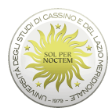
University of Cassino and Southern Lazio
-

University of Campania Luigi Vanvitelli
-
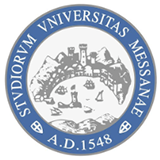
University of Messina
-

Libera Universita degli Studi Maria SS. Assunta di Roma (LUMSA)
-

University of Bari Aldo Moro
-

University of Siena
-

University of Salerno
-
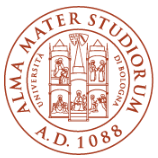
University of Bologna
-
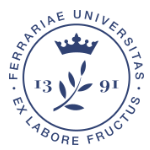
University of Ferrara
-
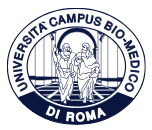
Campus Bio-Medico University of Rome
-

Mesoamerican University
-

Istmo University
-

Mariano Galvez University of Guatemala
-

Regional University of Guatemala
-

Galileo University
-

Francisco Marroquín University
-

Rafael Landívar University
-

University of the Valley of Guatemala
-

University of San Carlos of Guatemala
-

Technological Institute of Tlaxcala Plateau
-

Golfo University
-

Technological University of South Sonora
-

Technological University of Huejotzingo
-

Tizimín Institute of Technology
-

Chilpancingo Institute of Technology

